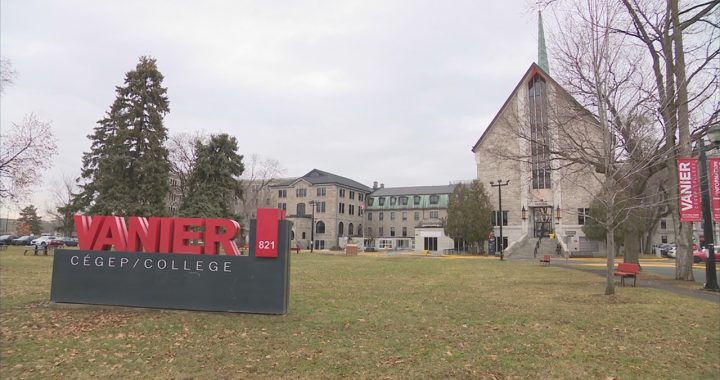It’s been almost a month since Quebec lifted most of its pandemic restrictions – and while most of the population is venturing out again, there’s one group now under government order to return to confinement in close quarters.
“It was kind of a very rapid change,” explained Nadia Golmier, a lawyer working with inmates detained in facilities both in and around the Montreal area. Those people that were doing their weekends – serving their weekends at home – were ordered very rapidly to go back to jail to do their sentence.
“I’ve seen in those cases that, unfortunately, maybe it was not really that well managed.”
Back in March 2020, Quebec’s Public Security Ministry granted a temporary COVID-19 exception for detainees who were “intermittently sentenced,” or sentenced to serve weekends.
Under this “medical absence” order, inmates were “assigned to their home during times when they were to be incarcerated, rather than having to report to the detention facility,” according to a ministry statement sent to APTN News in February 2021.
According to the statement, as of May 2020, it became possible for certain incarcerated people – mainly those over 65, pregnant, or those nearing the end of their sentence – to serve the remainder under house arrest.
But when Quebec lifted its restrictions in March 2022, a number of Golmier’s clients, previously allowed to serve weekends at home, received a new government order to begin serving time in person again.
“I think the government should have more concern and think twice before ending all those types of measures. Because in jail, the conditions are still difficult. The COVID is still spreading,” Golmier said.
“And plus, to add to all that, there’s a lack of staff nowadays – a serious lack of staff, which may make it a little difficult for everybody to manage the situation appropriately, and in accordance to the sanitary measures that should be respected.”
Golmier reached out to APTN on behalf of one of her clients, a Mohawk man who agreed to be interviewed on condition of anonymity.
The man, who APTN News is calling Kurt, is currently serving a 60-90 day assault sentence on weekends at the Montreal-Bordeaux detention centre, a minimum-security institution on the island of Montreal which was particularly hard-hit by COVID during the pandemic.
According to data from Quebec’s Public Security Ministry, more than 740 inmates, and over 400 guards tested COVID-positive since March 2020.
In an emailed statement, a ministry spokesperson told APTN 17 guards and one inmate received a positive COVID diagnosis since Quebec’s restrictions lifted in mid-March.
Kurt says Bordeaux needs to put more precautions in place in order to avoid another outbreak.
“I thought they’d have some safety measures like with COVID – I didn’t think we would be sleeping less than a foot away from each other,” Kurt explained in a phone interview. “The first weekend, they put us into a bullpen with like – I’m not even kidding – 50-60 guys. That bullpen was, like, the size of my back porch.
“They put me in there, and we were shoulder to shoulder. We couldn’t even move, man.”
Kurt alleges weekend inmates at Bordeaux are served only one meal a day, are not provided with soap or sanitizer, and are not encouraged by guards to socially distance or keep masks on.
“Last time I was sitting there counting the people wearing masks, and there was like, me, and maybe four or five other people out of 100 people,” he said.
The Quebec government, however, insists they’ve paid “particular attention” to its provincially-run jails throughout the pandemic.
“The announcement of the sixth wave does not affect the various preventive measures taken in detention facilities, which continue to be applied diligently,” a spokesperson for the Public Security Ministry said in an emailed statement.
In the email, the ministry outlines a number of measures in place for inmates, including the “compulsory” wearing of a procedural mask, nursing assessments and rapid tests upon arrival, and quarantine for all inmates with symptoms.
With COVID cases on the rise again, as a follow-up, APTN asked the Public Security Ministry whether it’d be granting exceptions for the intermittently sentenced if they are considered “vulnerable” or are otherwise uncomfortable serving time in person.
That email went unanswered by the deadline.
Kurt, meanwhile, is working with Golmier to try and get his sentence reduced. He has concerns for his job, his family, and other low-risk offenders he claims are put at risk by this policy.
“If I catch it, I can’t go to work all week because I’m sick and I don’t want to infect my coworkers. And then what? I don’t have money to feed my family or pay my bills,” he said.
“It’s not like we’re like murderers, and killers, and everything. I’m sure a lot of people are in for small crimes too.”










